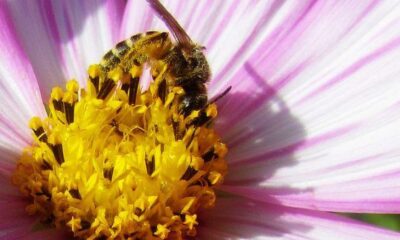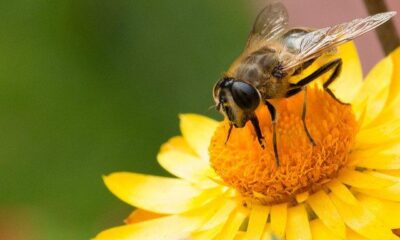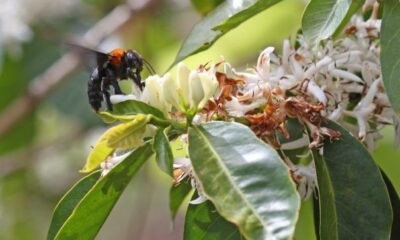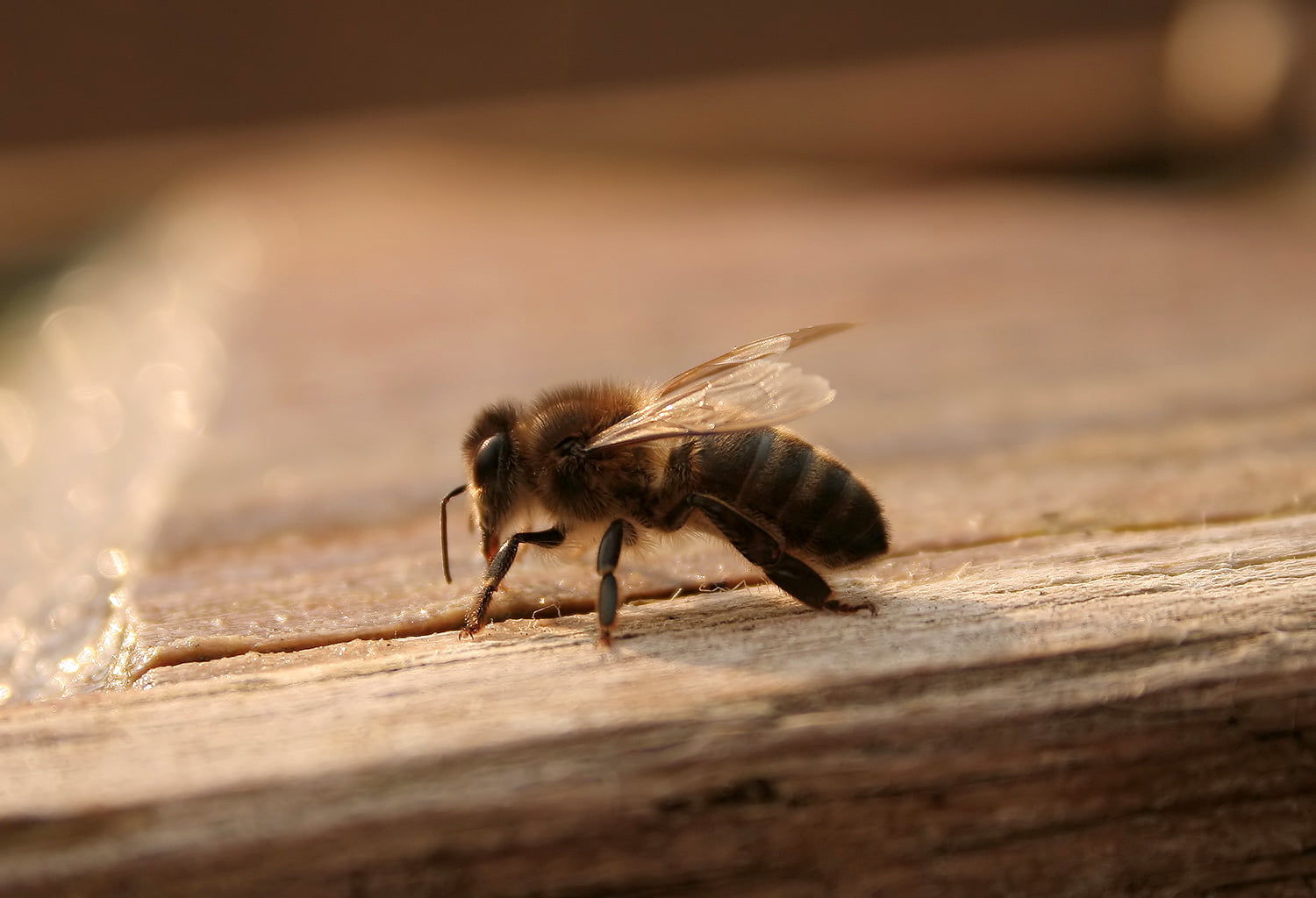
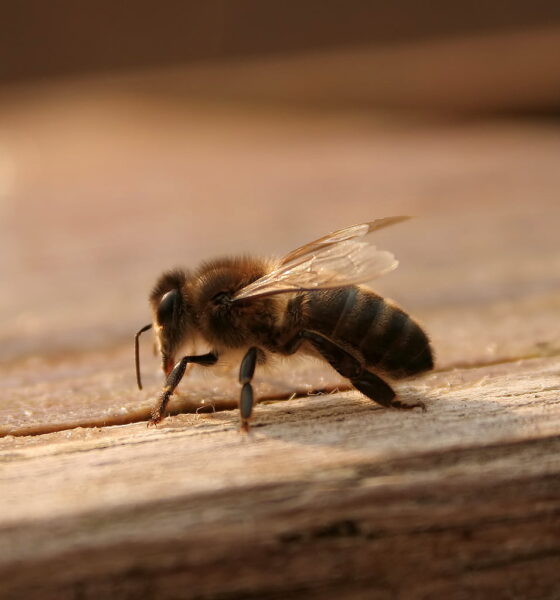
Environment
Studies shows bee brain damage caused by pesticides
Two common pesticides can compromise honeybees’ neurological functions, a study published in the Nature journal has shown.
The widespread use of organophosphate miticides and neonicotinoids affect bees’ behaviour and disorientate their sense of smell, the study says.
It adds that that the chemicals damage the learning area of the brain that allows bees to find food, as it makes them unable to associate scents with nectar.
Meanwhile, another study has confirmed that these pesticides affect the “olfactory learning and memory formation in the honeybee”, meaning the important role the insects have on agriculture and the ecosystem is compromised.
According to the BBC, though, “A company that makes the substances said laboratory-based studies did not always apply to bees in the wild.”
The global debate around the decline of honeybees is still a hot topic, after a group of beekeepers in the US recently sued the Environmental Protection Agency over bee deaths.
Elsewhere, UK environment secretary Owen Paterson rejected an EU ban of three harmful pesticides, justifying the decision by saying that more research was needed. Campaigners claimed he and the other states that voted against the movement were acting in the interests of chemical companies.
Last month, hardware retailers B&Q, Wickes and Homebase decided to take the insecticides in question off their shelves, with a number of garden centres doing the same.
Commenting on the failed ban, Friends of the Earth’s head of campaigns Andrew Pendleton pointed out “there is more than enough evidence that these chemicals are linked to bee decline to place immediate restrictions on their use.”
He added, “The UK government could and should follow the example of retailers and take action to ban these products.”
Further reading:
Lawsuit filed against EPA over ongoing bee deaths
Paterson likely to reject EU ban on insecticides harmful to bees
EU countries told to suspend insecticides harmful to bees
Government urged to make 2013 ‘the year of the bee’
Bee protection ‘essential’ after scientists link decline in numbers with insecticides


 Environment12 months ago
Environment12 months agoAre Polymer Banknotes: an Eco-Friendly Trend or a Groundswell?

 Features11 months ago
Features11 months agoEco-Friendly Cryptocurrencies: Sustainable Investment Choices

 Features12 months ago
Features12 months agoEco-Friendly Crypto Traders Must Find the Right Exchange

 Energy11 months ago
Energy11 months agoThe Growing Role of Solar Panels in Ireland’s Energy Future


